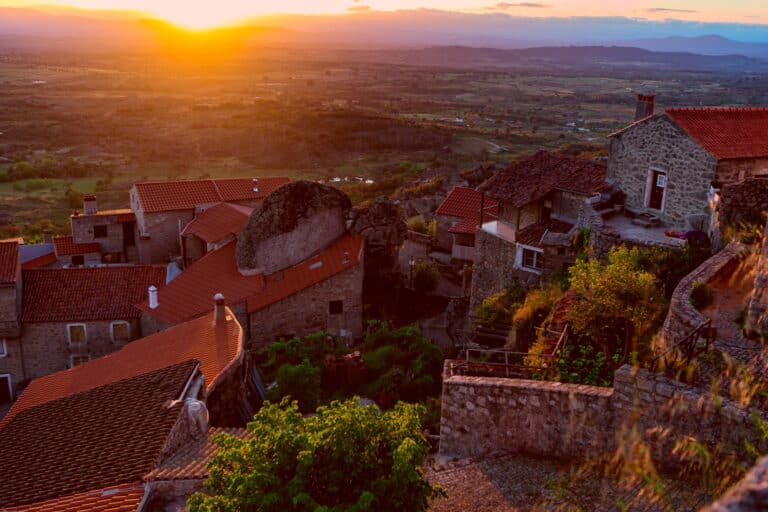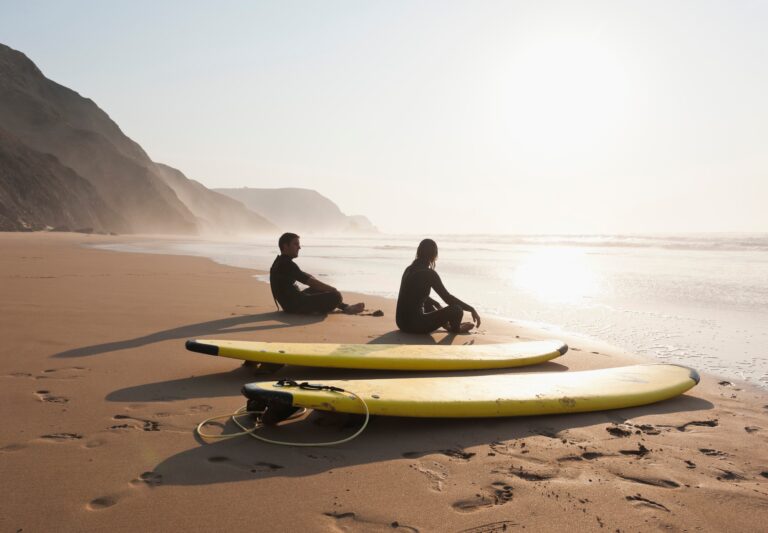Most Beautiful Villages in Portugal: A Complete Guide for Expats
Moving to Portugal offers expats the incredible opportunity to explore some of Europe’s most enchanting villages. Whether you’re considering Portuguese residency or already settling in, discovering these hidden gems will help you truly appreciate your new home country. From medieval fortresses perched on hilltops to riverside settlements that seem frozen in time, Portugal’s villages offer authentic experiences that showcase the country’s rich heritage and natural beauty.
Why Explore Portugal’s Villages as an Expat
When you move to Portugal, you’re not just relocating to a new country – you’re gaining access to centuries of history, diverse landscapes, and authentic Portuguese culture. These villages offer expats unique advantages that urban centers often can’t match.
Portugal’s villages provide an authentic immersion into Portuguese life that helps with cultural integration. Living in or frequently visiting these communities accelerates your Portuguese language learning as you interact with locals who often speak little English. The slower pace of life in these villages also offers a refreshing contrast to busy city centers, making them perfect weekend retreats or even permanent homes for remote workers holding a D8 Digital Nomad Visa.
Many expats find that Portugal’s villages offer significantly lower living costs compared to Lisbon or Porto. Property prices, dining, and daily expenses can be 30-50% lower, making them attractive options for retirees with a D7 Passive Income Visa or entrepreneurs establishing businesses under the D2 Visa.
Northern Portugal’s Historic Villages
Northern Portugal’s villages showcase the country’s medieval heritage and border traditions. These communities have preserved their authentic character while adapting to modern needs, making them fascinating destinations for expats to explore or settle in.
Sistelo: The Little Portuguese Tibet 🏔️
Nestled in the Peneda-Gerês National Park, Sistelo earns its nickname from the terraced landscapes reminiscent of Himalayan villages. The green terraces where locals cultivate crops and graze cattle create a stunning visual tapestry that changes with the seasons. In 2018, UNESCO recognized Sistelo’s cultural landscape as a national monument, cementing its importance in Portugal’s heritage.
For expats interested in sustainable living or agritourism, Sistelo represents an inspiring model of traditional farming practices. The village maintains its community spirit through shared resources and collaborative farming, offering lessons in sustainable rural life. The Castle of the Viscount of Sistelo, a 19th-century manor, provides insight into the region’s aristocratic past, while the Chã da Armada viewpoint offers panoramic vistas perfect for photography enthusiasts.
Rio de Onor: A Village Between Two Nations
Rio de Onor presents a unique situation that fascinates expats interested in European border dynamics. Split between Portugal and Spain, this community village demonstrates centuries of cross-border cooperation. Residents share ovens, mills, and land, maintaining traditions that predate modern national boundaries.
The village’s bilingual nature, with its unique Rionorese dialect, offers linguistic enthusiasts a rare opportunity to study language evolution. The communal governance system, led by two stewards representing local families, provides an alternative model to conventional municipal administration. Access Portugal often assists expats interested in understanding these unique border communities and their legal implications for residency and business operations.
Trancoso: Medieval Majesty on a Plateau
Perched on a plateau overlooking the expanse between Serra da Estrela and the Douro Valley, Trancoso combines strategic importance with architectural beauty. The village’s well-preserved medieval walls and imposing castle transport visitors back to the era of knights and conquests.
Trancoso holds special significance in Portuguese Jewish history, making it particularly interesting for those pursuing Portuguese citizenship through Sephardic Jewish ancestry. The village’s Jewish quarter, though now largely integrated into the broader community, contains architectural elements that speak to this heritage. Modern Trancoso balances preservation with progress, offering amenities that make it viable for expat residence while maintaining its historic character.
Central Portugal’s Timeless Treasures
Central Portugal’s villages represent the heart of the country’s rural traditions, where time seems to move at a different pace. These communities offer expats seeking authentic Portuguese experiences an ideal blend of accessibility and tradition.
Monsanto: Where Houses Become Rocks
Perhaps no village in Portugal captures the imagination quite like Monsanto. Built into and around massive granite boulders, this village demonstrates humanity’s ability to adapt to natural landscapes. Houses incorporate enormous rocks as walls, floors, and even roofs, creating an organic architecture that seems to grow from the earth itself.
In 1938, Monsanto earned the title of “Most Portuguese Village in Portugal,” a designation that still brings pride to its residents. For expats interested in sustainable architecture or unique building techniques, Monsanto offers endless inspiration. The village’s position atop a hill provides defensive advantages that shaped its history and offers modern visitors spectacular views across Beira Baixa.
When considering housing and real estate options in rural Portugal, Monsanto exemplifies both the challenges and rewards of restoring historic properties. While modernizing these unique homes requires sensitivity and expertise, the results can be extraordinary living spaces that honor Portuguese heritage.
Piódão: The Schist Village Nativity Scene
Tucked into the Açor mountains, Piódão appears like a living nativity scene with its dark schist houses contrasting against blue-painted doors and windows. This color scheme, mandated by local tradition, creates a visual harmony that photographers and artists find irresistible.
The village’s remote location helped preserve its traditional architecture and customs, making it one of Portugal’s Seven Wonders in the “Remote Villages” category. The baroque parish church, with its distinctive white façade and cylindrical towers, serves as the village’s focal point and community gathering place. For expats seeking retreat properties or weekend homes, Piódão offers tranquility without complete isolation, as improved roads now connect it to larger towns.
Dornes: Templar Legacy by the River
The peninsula village of Dornes, surrounded by the waters of the Zêzere River and Castelo de Bode dam, combines Templar history with modern recreational opportunities. Its pentagonal Templar tower, unique in Portugal, stands as a testament to the military order’s influence on Portuguese development.
Today’s Dornes attracts water sports enthusiasts and history buffs alike. The dam’s clear waters offer excellent swimming, boating, and fishing opportunities, while the village’s narrow streets preserve their medieval character. Expats with boats or interest in water activities find Dornes particularly appealing, especially those who value the combination of historical significance and outdoor recreation.
Southern Villages and Coastal Charms
Southern Portugal’s villages offer a different character from their northern counterparts, with Moorish influences and Mediterranean landscapes creating unique atmospheres that many expats find irresistible.
Monsaraz: Alentejo’s Crown Jewel
Perched above the Guadiana River near the Spanish border, Monsaraz exemplifies Alentejo’s timeless beauty. This walled village, with its whitewashed houses and cobblestone streets, contains over 150 classified monuments within its compact medieval core.
The village’s strategic position made it crucial during centuries of border conflicts, and its castle still watches over the vast Alentejo plains. Today, Monsaraz attracts expats drawn to Alentejo’s slower pace of life, excellent wines, and dark sky reserves perfect for stargazing. The nearby Alqueva Dam, Europe’s largest artificial lake, adds recreational opportunities while the village maintains its authentic character.
For those holding a D7 Visa and seeking peaceful retirement locations, Monsaraz offers an ideal combination of beauty, culture, and modern amenities. The village’s proximity to Spain also appeals to expats who appreciate easy access to both countries.
Island Paradise: Villages in Madeira and Azores
Portugal’s island territories offer villages with distinct characters shaped by volcanic landscapes and Atlantic isolation. These communities provide expats with alternatives to mainland living while maintaining Portuguese cultural connections.
Curral das Freiras: Madeira’s Hidden Valley
Dramatically situated in an extinct volcanic crater, Curral das Freiras (Nuns’ Valley) tells a story of refuge and resilience. The village’s name derives from Santa Clara nuns who fled here during 16th-century pirate raids, finding safety in its hidden location.
Modern access roads have opened this once-isolated community to visitors and potential residents, though the journey down the mountainside remains spectacular. The village specializes in chestnut cultivation, with autumn festivals celebrating this crop that thrives in the valley’s microclimate. Expats interested in Madeira’s Non-Habitual Resident (NHR) tax benefits find the island’s villages offer unique lifestyle options while maintaining tax advantages.
Fajã dos Cubres: Azores’ Natural Wonder
On São Jorge island, Fajã dos Cubres represents the Azores’ dramatic geological heritage. This coastal village, formed by ancient lava flows and landslides, features a unique lagoon system that supports diverse wildlife and traditional fishing practices.
The village’s protected landscape status ensures preservation while allowing sustainable development. The Nossa Senhora de Lourdes hermitage, whose spring water locals consider miraculous, adds spiritual significance to natural beauty. For expats seeking remote work locations with reliable internet, the Azores’ investment in digital infrastructure makes even isolated villages like Fajã dos Cubres viable options.
Practical Tips for Village Exploration
Successfully exploring Portugal’s villages requires preparation and cultural sensitivity. Understanding local customs and practical considerations enhances your experience and helps build positive relationships with village communities.
Transportation Considerations
While Portugal’s public transport serves major routes well, reaching remote villages often requires private transportation. Renting a car provides flexibility, but be prepared for narrow roads and limited parking in historic centers. Some villages restrict vehicle access to residents, requiring visitors to park outside medieval walls and explore on foot.
Consider obtaining an International Driving Permit or exchanging your foreign license before embarking on extensive village exploration. Mountain roads demand confident driving, especially in winter conditions. Access Portugal assists clients with license exchanges and provides guidance on safe driving practices in rural areas.
Cultural Etiquette and Integration
Village communities value respect for traditions and local customs. Learning basic Portuguese phrases goes far beyond practical communication – it demonstrates respect and opens doors to genuine interactions. Simple greetings, “please,” and “thank you” in Portuguese can transform your reception in village shops and cafés.
When photographing villages and residents, always ask permission, especially for close-up shots of people or private property. Many villagers appreciate interest in their community but prefer privacy respected. Purchasing local products and dining in village restaurants supports local economies and provides authentic cultural experiences.
Seasonal Considerations
Portugal’s villages showcase different characters across seasons, and timing your visits can enhance specific experiences. Spring brings wildflowers to mountain villages and comfortable temperatures for hiking. Summer festivals celebrate patron saints with processions, music, and traditional foods, though accommodation can be scarce during popular events.
Autumn offers harvest celebrations, particularly in wine-producing regions, while winter provides peaceful exploration opportunities with fewer tourists. However, some village restaurants and accommodations close during winter months, so advance planning becomes essential. Access Portugal provides seasonal guides helping expats plan village visits and understand local event calendars.
Living in Portuguese Villages: What Expats Need to Know
Transitioning from visiting villages to residing in them requires careful consideration of practical factors that impact daily life. Many expats successfully make this transition, finding fulfillment in village life’s rhythms and community connections.
Property Considerations and Renovation
Village properties often offer exceptional value compared to urban real estate, but renovation requirements can be substantial. Historic properties may have preservation restrictions limiting modernization options. Understanding these constraints before purchasing prevents costly surprises.
Working with local architects and builders familiar with traditional construction methods ensures renovations respect village character while meeting modern living standards. Building permits in Portugal for historic properties involve additional considerations, and Access Portugal’s expertise helps navigate these complexities.
Installing modern amenities like high-speed internet or updated plumbing in centuries-old structures requires creative solutions. Many expats find the renovation process rewarding, creating unique homes that blend historical character with contemporary comfort. Budget 20-30% above initial estimates for unexpected discoveries common in old buildings.
Healthcare and Services Access
Village healthcare varies significantly, with larger villages maintaining health centers while smaller communities rely on visiting doctors. Understanding local healthcare availability helps expats plan appropriately, especially those with chronic conditions requiring regular treatment.
Many expats maintain private health insurance supplementing Portugal’s public healthcare system, ensuring access to specialists in larger cities when needed. Establishing relationships with local pharmacists proves valuable, as Portuguese pharmacists provide extensive health advice and can contact doctors for prescription renewals.
Building Community Connections
Integration into village life requires patience and genuine interest in local culture. Participating in village events, shopping locally, and learning about local history demonstrates commitment to community. Many villages have cultural associations organizing events and maintaining traditions – joining these groups accelerates integration.
Language exchange arrangements benefit both expats and locals interested in practicing English. Offering skills or knowledge in exchange for Portuguese practice creates mutual value. Some expats teach English, share professional expertise, or contribute to community projects, building reciprocal relationships that enrich village life.
Economic Opportunities in Villages
While remote work enables location independence, some expats create local businesses serving both tourist and resident needs. Rural tourism, artisan workshops, and specialty food production represent growing sectors. The D2 Entrepreneur Visa supports business creation, and village locations often offer lower startup costs.
Agricultural ventures, particularly organic farming or specialty crops, attract expats seeking lifestyle changes. Portugal’s growing reputation for natural wines and craft foods creates market opportunities. Access Portugal assists entrepreneur visa applicants in developing business plans that incorporate village-based operations.
FAQs About Portugal’s Most Beautiful Villages
Which Portuguese villages are best for expat retirement?
Monsaraz, Marvão, and Óbidos offer excellent retirement options combining beauty, amenities, and expat communities. These villages provide healthcare access, cultural activities, and established expatriate networks while maintaining authentic Portuguese character. Consider proximity to hospitals and international airports when selecting retirement locations.
Can I find high-speed internet in remote Portuguese villages?
Portugal’s digital infrastructure improvements mean many villages now offer fiber optic connections. However, verify specific availability before committing to properties. Some expats use mobile data solutions in areas lacking fixed broadband. The government’s interior digitalization initiatives continue expanding coverage.
What’s the minimum Portuguese needed for village life?
Basic conversational Portuguese covering daily needs, directions, and simple social interactions suffices initially. However, deeper integration requires intermediate proficiency. Many expats find village immersion accelerates language learning compared to cities where English prevails. Consider intensive Portuguese courses before relocating to villages.
Are Portuguese villages safe for foreign residents?
Portuguese villages generally offer exceptional safety with low crime rates and strong community vigilance. Neighbors look out for each other, and unusual activity gets noticed quickly. Standard precautions apply, but violent crime remains virtually unknown in rural communities. Building local relationships enhances security through community integration.
How do I handle emergencies in remote villages?
Emergency services reach most villages within reasonable timeframes, but response times exceed urban standards. Learning basic Portuguese emergency phrases and knowing local contact numbers proves essential. Many expats maintain first aid training and establish relationships with neighbors who can assist during emergencies.
Can I run an Airbnb or rural tourism business in a village?
Yes, rural tourism represents a significant opportunity, but regulations vary by municipality. Licensing requirements for tourist accommodations include safety standards and registration. Many villages encourage quality tourism development that respects local character. Access Portugal guides clients through licensing processes and business establishment.
What about schooling options for expat families?
Larger villages maintain primary schools, while secondary education often requires travel to nearby towns. Some expat families choose homeschooling or online international schools. Portugal’s education system quality varies by region, so research specific village options. The D4 Study Visa may apply for international students.
How do Portuguese inheritance laws affect village property?
Portuguese inheritance law includes forced heirship provisions affecting property disposition. Understanding these laws before purchasing village property prevents future complications. Access Portugal recommends comprehensive legal consultation for property purchases, especially for historic or agricultural properties with complex ownership histories.
Portugal’s most beautiful villages offer expats more than scenic beauty – they provide gateways to authentic Portuguese life, investment opportunities, and lifestyle alternatives to urban living. Whether seeking weekend retreats, retirement havens, or complete lifestyle changes, these villages reward those willing to embrace their rhythms and traditions.
Successfully navigating village exploration or relocation requires understanding practical considerations from transportation to healthcare access. Language skills, cultural sensitivity, and patience unlock deeper connections with communities that have preserved traditions across centuries. 🏡
Access Portugal’s expertise helps expats transform village dreams into reality. From visa applications supporting rural residence to property purchase guidance and business establishment, our comprehensive services smooth your transition to village life. Our multilingual team understands both expatriate needs and Portuguese village cultures, bridging differences and facilitating successful integration.
Whether you’re planning village visits to better understand Portugal or seriously considering rural relocation, professional guidance ensures you make informed decisions. Contact Access Portugal to discuss how we can support your Portuguese village adventures, from initial exploration through permanent settlement. Let us help you discover which of Portugal’s beautiful villages might become your new home.







